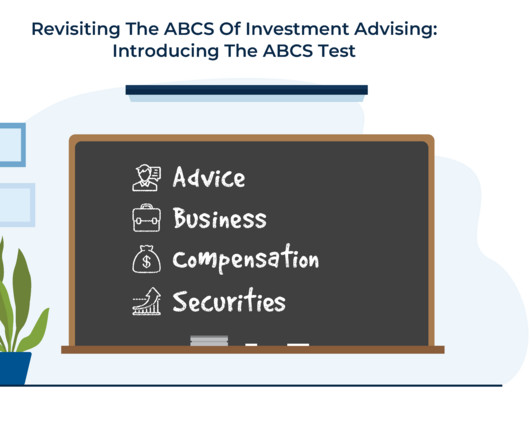When Does A Financial Coach Need To Register As An Investment Adviser? The “ABCS” Test To Determine Status
Nerd's Eye View
DECEMBER 6, 2023
Notably, while many financial coaches satisfy the majority of these requirements – they are in the business of offering advice to clients and are compensated as such – they often steer clear of making specific securities recommendations, focusing instead on areas like budgeting, debt management, savings, and retirement planning.























Let's personalize your content